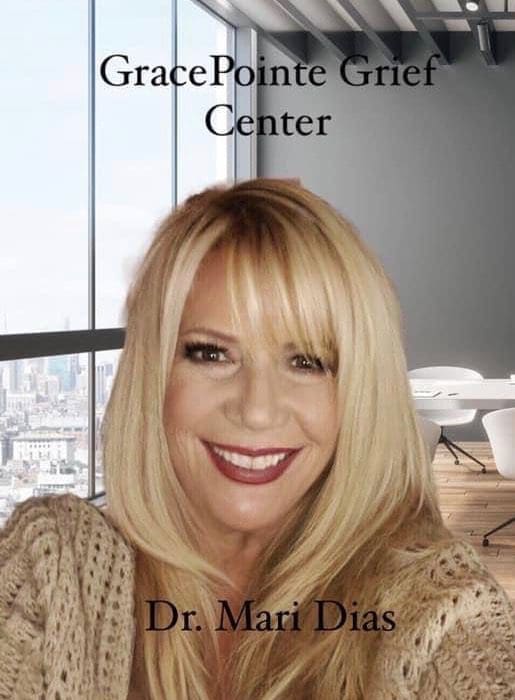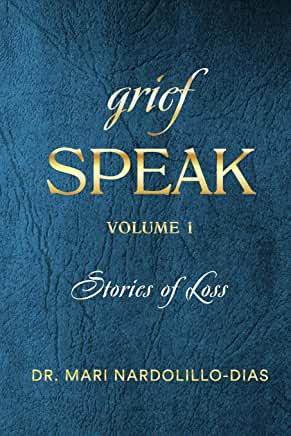Search Posts
Recent Posts
- Outdoors in RI: Help keep recreation areas clean. Invasive Milfoil, trash. 2A update – Jeff Gross July 26, 2024
- Real Estate in RI: Highest-ever sale in Queen’s Grant, EG $1.25M, by Residential Properties July 26, 2024
- Homeless in RI: Gov. Newsom issues Executive Order. Remove California’s encampments. July 26, 2024
- Let the games begin. XXXIII Summer Olympics – John Cardullo July 26, 2024
- GriefSPEAK: What would you do? – Mari Dias Nardolillo July 26, 2024
Categories
Subscribe!
Thanks for subscribing! Please check your email for further instructions.

GriefSpeak: What’s your relationship with your grief? – Mari Nardolillo Dias
By: Mari Nardolillo Dias
Relationship: “The way in which two or more people or things are related”
Maressa did not blink during our two hour entire session. She was wide-eyed and in shock as I waited for her to exhale. Her breaths were a series of short inhales as she spoke in a whisper, as if saying it quietly made it less painful. Less frightening. I was hoping she would exhale.
“My grief is getting bigger and bigger and I’m getting smaller and smaller. I feel like it’s going to overcome me. I am terrified.”
Maressa has the ability to visualize her grief and see it outside of herself, while she waits for it consume her. She is at war with her grief and feels like she is losing. We all have a relationship with our grief. Some of us try to outrun it as we imagine it chasing us. Others, like Maressa may feel overwhelmed and scared, and some might even succumb. Still others may walk away from the fight, while they bury their grief and associated emotions in substance or process addictions (alcohol, drugs, gambling, pornography, sex, exercise, work, etc. Is there a “best case” scenario for our relationship with grief? Would you want to erase it? Are there positive characteristics in this relationship? Well, I can tell you – don’t fight your grief. The harder you struggle to combat your grief, the more emotional and physical energy you use and thus deplete. This is the answer to:
“Why am I so tired?”
“Why don’t I feel like doing anything? I’m so unmotivated.”
“I can’t sleep”. “ I sleep too much.“ “I can’t stop eating.” “I have no appetite.”
You are still battling. Your grief is not going anywhere. You can’t hide from it. You can try, but eventually it will manifest itself psychologically and/or physically. Like Maressa, don’t let your grief intimidate you. According to Eleanor Haley, like all relationships,” Grief is made up of both bad and good things as well…Though its ongoing presence I sometimes find challenging, I embrace it because it a source of love and connection with those who have died.”
There is no question that there is a mind/body relationship as well. The field of Psychology is ladened with empirical evidence, particularly since the advent of sophisticated technology that provides testament to this connection. The mind/brain/body relationship is particularly important when we examine our relationship with grief. With Marissa, terror lives in her body as well as her brain. The memory of the trauma of her husband’s death occupies her amygdala, the part of the brain that is involved with experiencing emotions. Different parts of the brain also hold memories: in addition to the amygdala, the hippocampus (episodic memories – think “50 First Dates movie!), and the neocortex (short term working memory).
Why am I potentially boring you with brain science? Let me tell you. The traditional professional approach to grief is therapy and/or pharmaceuticals. Not a bad relationship. But lengthy. Medications can take the proverbial “edge” off the grief and are effectively used in a short term fashion. They allow us to be more cognizant and thus more engaged in therapy. There are additional methods when these two methods fail, take too long, or with someone like Maressa who is so distressed it interferes with her everyday life.
EMDR (Eye movement desensitization and reprocessing seems to have strong evidence of efficacy. With EMDR, Marissa would be asked to recall the terrifying images of her husband’s death as the therapist directs her with side to side eye movement. You may have seen this method is several episodes of “Law and Order-Criminal Intent” and/or “Criminal Minds”. Sometimes therapists use lights and have you focus and follow then with your eyes as the lights change.
Another new method is called “havening.” The goal of havening is similar to EMDR as both methods are designed to allow us, or Maressa, to access her episodic memories in the hippocampus, while lessening the emotional memory in the amygdala. An effective result with Maressa would be recalling the memory of her husband’s death without the terror she now experiences. Havening uses a different technique, which utilizes touch while Maressa recalls the terrifying images, and then remember the incident but do not experience the emotions associated with the memory.
Whether you choose to forego any professional counseling or support groups or want to try traditional grief psychotherapy with or without medication or feel a need to experience some of the new modalities of EMDR or Havening – I encourage you to examine your relationship with your grief. Like any relationship, it can be changed; however, there won’t be a breakup. Your grief is not going to leave. You have the power. You decide. Think about it. What’s your relationship with your grief? Interested in changing it?
NOTE: Maressa has attended one havening session. She feels “different”. When she recalls her husband’s traumatic death, she can see it, she can tell you the story – and as she does, she blinks and breathes normally and speaks well above a whisper. She no longer experiences terror in connection with his death. Just sadness.
_____

Dr. Mari Dias is a nationally board-certified counselor, holds a Fellow in Thanatology and is certified in both grief counseling and complicated grief. Dias is a Certified death doula, and has a Certificate in Psychological Autopsy.
She is Professor of Clinical Mental Health, Master of Science program, Johnson & Wales University. Dias is the director of GracePointe Grief Center, in North Kingstown, RI. For more information, go to: http://gracepointegrief.com/ . She is the author of GriefSpeak, vol. 1, Stories of Loss

